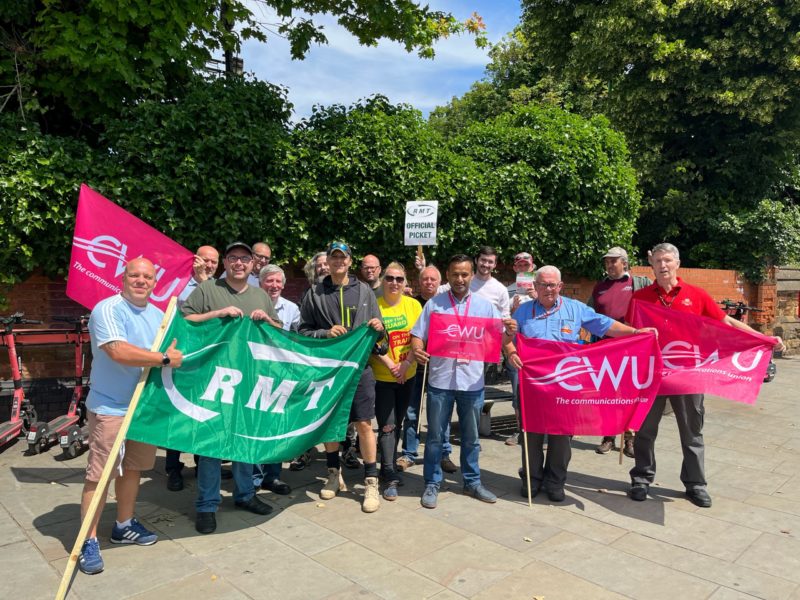Clive Lewis For Norwich South
A new set of rail strike dates have now been announced for the RMT, ASLEF and TSSA. This now means that all of the main rail unions are in dispute with either Network Rail or one of the privatised train operating companies.
In order to better understand the detail of these disputes and to show support and solidarity, I’ve been meeting with local branches and their members. My first meeting has been with the RMT Norwich Branch, soon followed by a meeting with ASLEF.
The first thing to say about RMT members I spoke to is that despite the relative success of the first strike from a public relations perspective and the wider support of the labour movement, maintaining morale is an ongoing challenge. That’s not surprising given the proposed scale of the cuts to staffing numbers, terms and conditions, and real terms pay. With the jobs of up to a third of the workforce estimated to be at stake, the industrial action they’re taking isn’t some kind of glamorous festival of activism. It’s a battle for their very future.
As the dispute plays out it’s increasingly clear the RMT and other unions are being targeted by an ideologically extreme government that understands that if workers are to be forced to pay for the cost of the Covid pandemic, just as they paid for the banker’s 2008 crashing of the economy with austerity, then breaking what is left of the trade union movement is key. As such members were clear – Network Rail calling isn’t calling the shots in this dispute, rather it’s the Government who are pulling the strings behind the scene.
To get a better understanding of what’s at stake, here are some of the real implications of the Government’s so-called ‘modernisation plan’.
- The Government have told Network Rail to make savings (AKA cuts) of around £100m. The RMT estimate the proposed changes amount to a figure closer to £230m.
- Alternative strategies for saving money have not been explored claim the RMT. For example, ending costly outsourced contractors for certain safety work on rail lines and bringing it ‘in-house’ could save almost £100m.
- The current recruitment freeze operating within Network Rail maintenance plus the proposed redundancies will mean up to a third less staff working in this critical sector.
- Signaller fatigue and their increased workload is already dire. The modernisation plans will only make this situation worse and therefore more dangerous for staff and passengers.
Ultimately, what the Government are attempting to do on the railways will affect the quality of our public service. One that should, given the climate crisis and the need to move away from polluting car journeys, be invested in not cut. These workers are defending their own jobs yes, but in the process they’re defending a public service we all rely on.
Public support for a well-resourced, expansive rail system like they have in France and Germany – operated in the interests of the public and not shareholders – is now not in question. And yet as Network Rail prepares to be reorganised and relaunched as Great British Rail (GB Rail), we hear the new organisation has already told privatised rail companies that it will guarantee their profits. A taxpayer-subsidy for privatised share-holder profit, whilst the workers that keep the services running are told that if they are lucky enough to keep their job – they’ll have to work harder for less pay, for such a privilege.
This Government, whoever its new leader, must be stopped. This isn’t just a fight for a public service. It’s a fight for what kind of country the UK will be post-Covid and post-Brexit. It’s why teachers, nurses, doctors, and other unionised members have to make a stand for their livelihoods but also send a message to Westminster that they will not meekly accept another decade of cuts and stagnant pay.
As a Labour MP I have every intention of playing my part in amplifying that defiance whenever I can, however I can.


